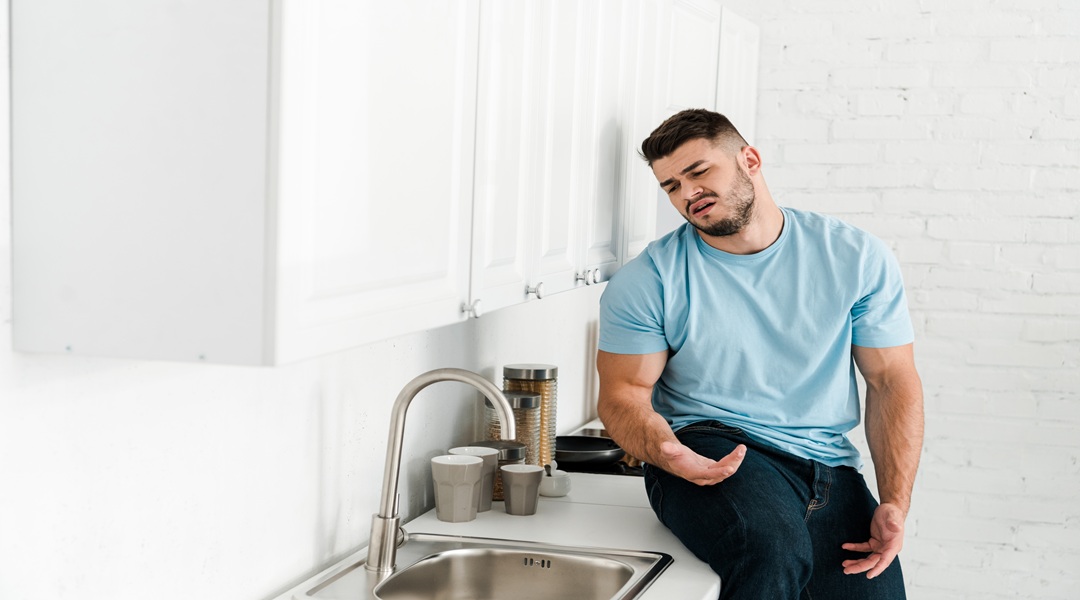Discovering a sewer smell in your home can be alarming and signals a plumbing issue that requires immediate attention. That rotten-egg smell? It’s hydrogen sulfide gas, released when things like food, pee, and poop start to break down.
Efficient plumbing systems channel these odors away through vent systems; however, when something goes awry, the foul smell invades your living space. Health problems, such as fever and diarrhea, are a real threat if you’re exposed to sewage leaks. There are other illnesses too.
Underscoring the urgency of addressing this problem promptly. Among several culprits behind sewer smells are dry P-traps. Understanding the vulnerabilities of Los Angeles homes begins with this.
Dry P-Traps and Los Angeles Homes
Have you ever noticed a foul smell similar to rotten eggs in your house? This could be due to dry P-traps, which are especially common in Los Angeles homes. A P-trap is essential because it prevents sewer smells from entering through the pipes by forming a water barrier.
However, when these traps dry out, usually in rarely used fixtures like those found in guest or vacation houses, they can’t block this rancid odor anymore. The solution might seem simple: just run some water to refill the trap. But what if that doesn’t work?
You may need professional help at this point. Regularly maintaining these plumbing components ensures that unpleasant odors stay where they belong—out of your living spaces. For further insights into fixing such stinky issues and more on improving your home’s air quality, check Los Angeles plumbing services.
Remember, addressing sewer smell problems promptly keeps your home healthy and pleasing for everyone.
Cracked Sewer Lines in Urban Settings
Cracked sewer lines in urban settings present a unique challenge. This can result from several factors, leading to unpleasant odors infiltrating your home.
- Aging Infrastructure: Urban areas often have older sewage systems that are more susceptible to wear and tear. As these pipes age, they become brittle and may crack under pressure or due to ground movement. These cracks allow sewer gases to escape into the environment. Regular maintenance is key, but sometimes repairs or replacements are necessary when damage becomes extensive.
- Tree Root Intrusion: Trees searching for moisture can find their way into even tiny cracks in sewer lines. Once inside, roots expand and can cause significant damage by further cracking the pipes open wider; this creates an entry point for sewer gas into your home if those pipes connect somehow underground near it. If you notice faster-than-normal growth around certain trees, consider inspecting nearby sewer lines.
Vent Pipe Issues in Household Plumbing
Vent pipe blockage can cause sewer smells in your home. When leaves, debris, or animal nests clog the vent pipe that routes sewer gases outside, those gases may instead flow back into your rooms. Keeping these pipes clear is crucial for odor-free living spaces.
Such issues often signal a need for detailed inspection and clearing of the outdoor components of your plumbing system to ensure proper ventilation and prevent bad smells from infiltrating indoor areas. Regular checks help catch these blockages early, preventing more problematic situations like persistent unpleasant odors or even potential health hazards from gas buildup indoors.
A sewer smell in your home usually points to a deeper issue, such as blocked drainage pipes or dry traps that should contain water. It’s essential to address these problems promptly as they don’t just bring unpleasant odors but can also pose health risks over time. With expertise like Camco Rooter provides, diagnosing and resolving the root cause of sewer smells becomes more straightforward.
Trusting professionals ensures your living environment remains safe, clean, and odor-free while preventing potential long-term damage to your plumbing system.

